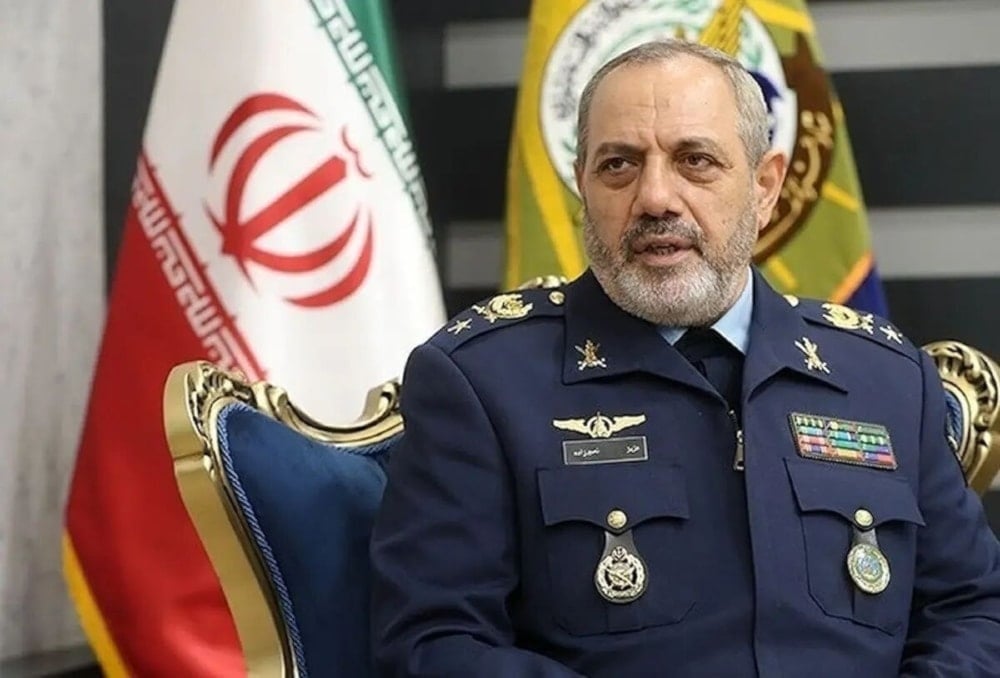Tehran warns US amid Gulf buildup: 'We won't bow to pressure'
Iran has condemned the recent U.S. military buildup across the Gulf as an act of intimidation, vowing to defend its sovereignty and resist what it calls psychological warfare and regional militarization.
-

Iranian Defense Minister Brigadier General Aziz Nasirzadeh (IRNA)
Iran's Defense Minister, Brigadier General Aziz Nasirzadeh, reaffirmed that the country stands fully prepared to defend its sovereignty in the face of expanding US military activity across the region. His remarks come amid a series of large-scale American deployments, including the repositioning of aerial refueling aircraft, fighter jets, and naval assets near Iran's periphery, moves Tehran views as part of a broader strategy of intimidation and encirclement.
"Iran is ready to defend its country regardless of the movements of US cargo aircraft toward the region," Nasirzadeh declared, urging national institutions to remain steadfast and immune to "the psychological war being waged by the enemy."
He explained that Washington's maneuvers, involving tankers, surveillance flights, and carrier deployments, are designed to disrupt public life and instill fear among the Iranian population. Despite these provocations, Nasirzadeh noted that Iran will respond decisively to any attempt to destabilize the nation or harm its people, warning that such actions "will not go unanswered."
Gulf Militarization Pact
According to NewsWeek and other US news outlets, recent US military movements have included the mass deployment of KC-135 aerial refueling tankers, advanced fighter squadrons, and naval reinforcements positioned near the Gulf and the Eastern Mediterranean.
Much of this buildup is concentrated in Qatar, which hosts the Al Udeid Air Base, a central hub for American air operations. Tehran regards this activity as part of a coordinated escalation following Washington's newly signed defense pact with Doha, under which President Donald Trump pledged that any attack on Qatari territory or infrastructure would trigger a US military response.
From Iran's perspective, the US-Qatar agreement transforms Qatar into a forward-operating platform for Washington's regional agenda, effectively extending the US security perimeter into the heart of the Persian Gulf. Iranian officials view this guarantee as a move that blurs the line between defense and aggression, giving Washington a pretext to expand its air and naval presence under the guise of "protecting allies."
Analysts in Tehran argue that the timing of this agreement, signed shortly after heightened tensions involving Israel and resistance groups, exposes Washington's intent to consolidate its influence across Gulf states while containing Iran's regional posture. For Iranian officials, the accord reinforces a pattern of militarization and external interference, proving that US policies in the Gulf remain anchored in coercion rather than diplomacy.
Strategic Defiance Endures
In a related development, Iran's Supreme National Security Council issued a firm warning that any hostile act against the Islamic Republic or its nuclear infrastructure, including attempts to revive expired UN Security Council resolutions through the so-called "snapback mechanism", would trigger an immediate suspension of cooperation with the International Atomic Energy Agency (IAEA).
Meanwhile, Ebrahim Azizi, head of the Iranian Parliament's National Security and Foreign Policy Committee, reiterated that Washington's "maximum pressure" campaign has collapsed.
"Those who stand behind this policy will regret it this time more than ever before," he said, underscoring Iran's confidence in the failure of Western coercion.
Read more: IRGC marks Op. True Promise 2, vows heavier response to 'Israel'

 3 Min Read
3 Min Read








